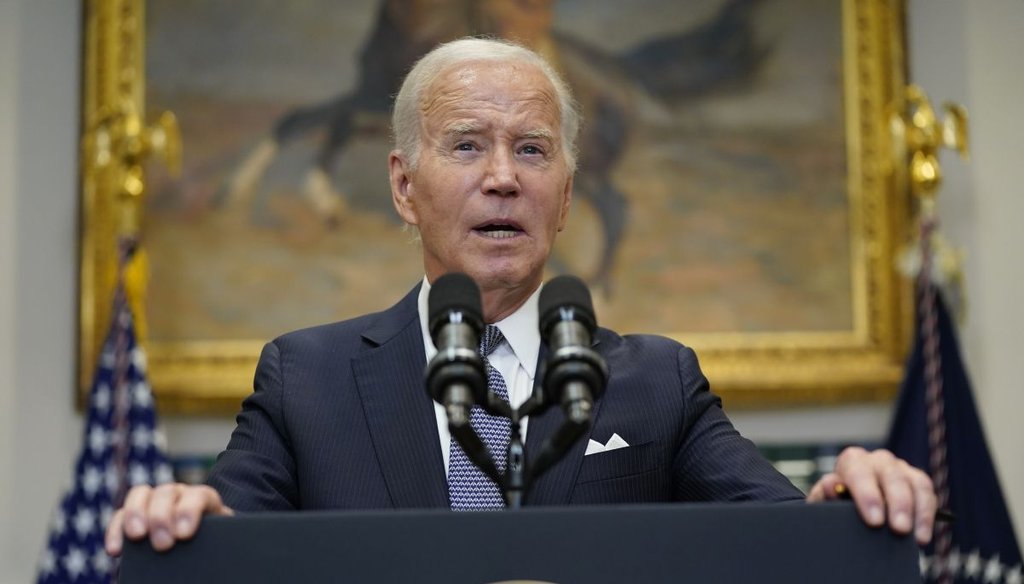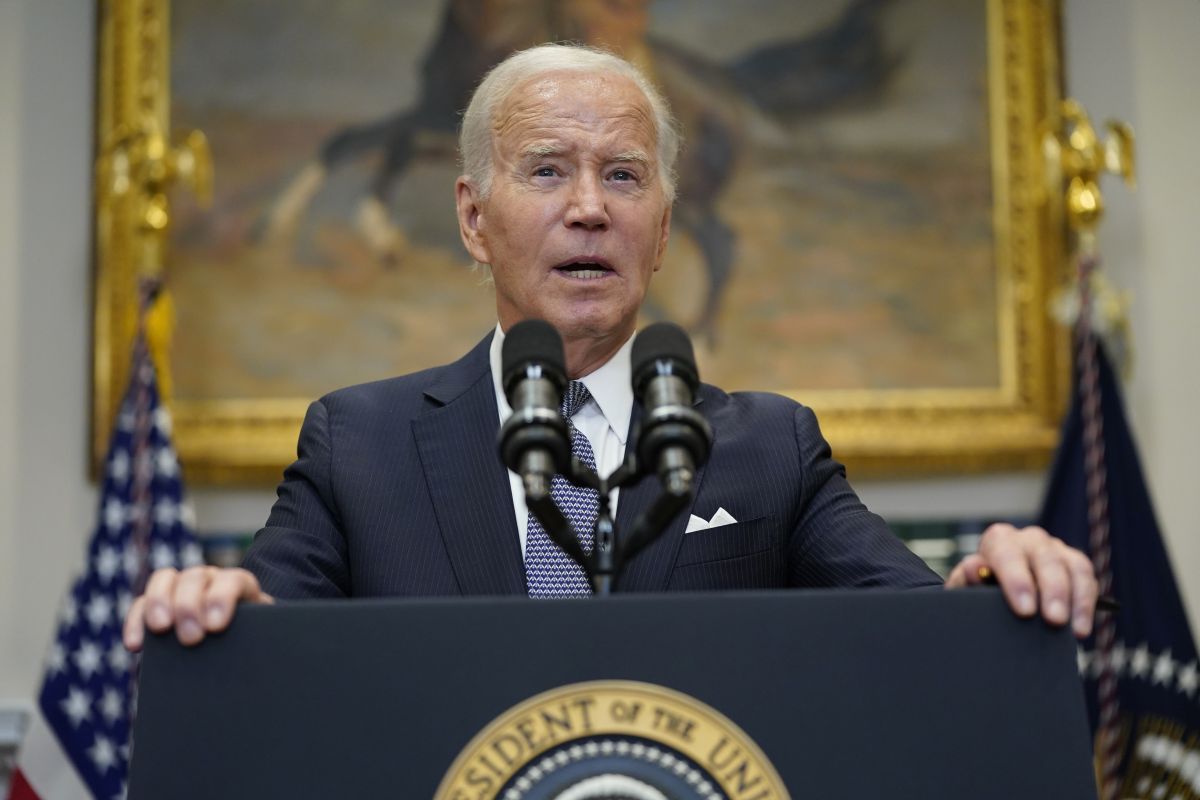Get PolitiFact in your inbox.
Supreme Court strikes down Biden’s forgiveness plan; president promises new approach

President Joe Biden speaks from the White House on June 30, 2023, after its student loan debt relief plan was struck down by the Supreme Court. (AP)
The U.S. Supreme Court struck down President Joe Biden's plan to waive student loan debt for millions of Americans.
In a decision released June 30, a 6-3 majority said the Biden administration's justification for offering debt relief for qualified borrowers — a post-9/11 law called the HEROES Act — provided an insufficient legal basis for offering student loan relief.
Chief Justice John Roberts, writing for the majority, said the administration "asserts that the HEROES Act grants him the authority to cancel $430 billion of student loan principal. It does not. We hold today that the Act allows the Secretary (of Education) to 'waive or modify' existing statutory or regulatory provisions applicable to financial assistance programs under the Education Act, not to rewrite that statute from the ground up."
As a presidential candidate, Biden had promised to forgive undergraduate tuition-related federal student debt for borrowers earning up to $125,000. Student loan repayments have been repeatedly paused since March 2020, when the U.S. declared a state of emergency due to the coronavirus. The current pause is set to expire in October, though the StudentAid.gov website said following the ruling that it is "reviewing the court's decision to determine next steps."
After months of debating how to address student loan debt, Biden announced Aug. 24, 2022, that he would waive $10,000 of federal student loan debt for individuals earning less than $125,000 or couples earning less than $250,000. The plan extended an additional $10,000 in relief to those who met the earning requirements and had received Federal Pell Grants, which are awarded to low-income Americans.
In a statement after the ruling, Biden called the court's decision "wrong," and hours after the decision was released, he laid out a "new path" to offer relief "to as many borrowers as possible, as quickly as possible."
Biden's new approach banks on the justices reacting more favorably to a policy based on provisions of the Higher Education Act than they did to arguments based on the HEROES Act. The White House argues that language in the Higher Education Act allows the Education Department to "compromise, waive or release loans under certain circumstances."
"This new path is legally sound," Biden said from the White House. "It's going to take longer. And in my view, it's the best path that remains."
President Joe Biden speaks from the White House on June 30, 2023, after its student loan debt relief plan was struck down by the Supreme Court. (AP)
Biden's original plan faced two legal challenges at the Supreme Court. One suit, involving individual plaintiffs, was rejected by the justices in a unanimous decision, citing the plaintiffs' lack of standing — that is, the ability to show they had been harmed.
The second lawsuit, by a group of states opposed to the plan, was the one the justices ruled on, effectively blocking Biden's plan.
As of March 31, 2023, there were 43.6 million federal student loan borrowers, said Mark Kantrowitz, an expert on student debt and author of the book How to Appeal for More College Financial Aid.
One silver lining for the administration is that the end of the debt relief plan "will reduce the 2023 deficit by about $400 billion," according to the Center for a Responsible Federal Budget.
In the meantime, Biden announced a temporary, 12-month "ramp" repayment program to give borrowers "a chance to get back up and running." Under that plan, the Education Department will refrain for 12 months from referring borrowers to credit agencies if they miss payments, though interest will continue accruing.
It's unclear whether the Supreme Court would back Biden's retooled plan to use the Higher Education Act provisions. It took almost a year between the time Biden announced his plan based on the HEROES Act and the Supreme Court's rejection of it.
Alternately, Biden could ask Congress to specifically authorize student debt relief. However, the likelihood of such a bill passing, especially given the current Republican-held House, is considered low, and Biden has not put significant muscle toward such an effort since he's been president.
If Biden's new tack finds greater success in the future, we'll reconsider our rating. For now, though, getting his plan struck down by the Supreme Court counts as a Promise Broken.
PolitiFact Staff Writer Amy Sherman contributed to this report.
RELATED: Fact-checking statistics about Biden's student loan forgiveness plan
RELATED: Biden Promise Tracker
Our Sources
Supreme Court, ruling in Biden v. Nebraska, June 30, 2023
Washington Post, "Supreme Court rejects Biden student loan forgiveness plan," June 30, 2023
Washington Post, "Supreme Court's halt on student loan relief isn't end of Biden's effort," June 30, 2023
The Hill, "Biden plots new course to get relief for student borrowers," June 30, 2023
Statement by Maya MacGuineas, president of the Committee for a Responsible Federal Budget, June 30, 2023
Email interview, Mark Kantrowitz, an expert on student debt and author of the book How to Appeal for More College Financial Aid, June 21, 2023
Education Department, Statement to PolitiFact, June 21, 2023

